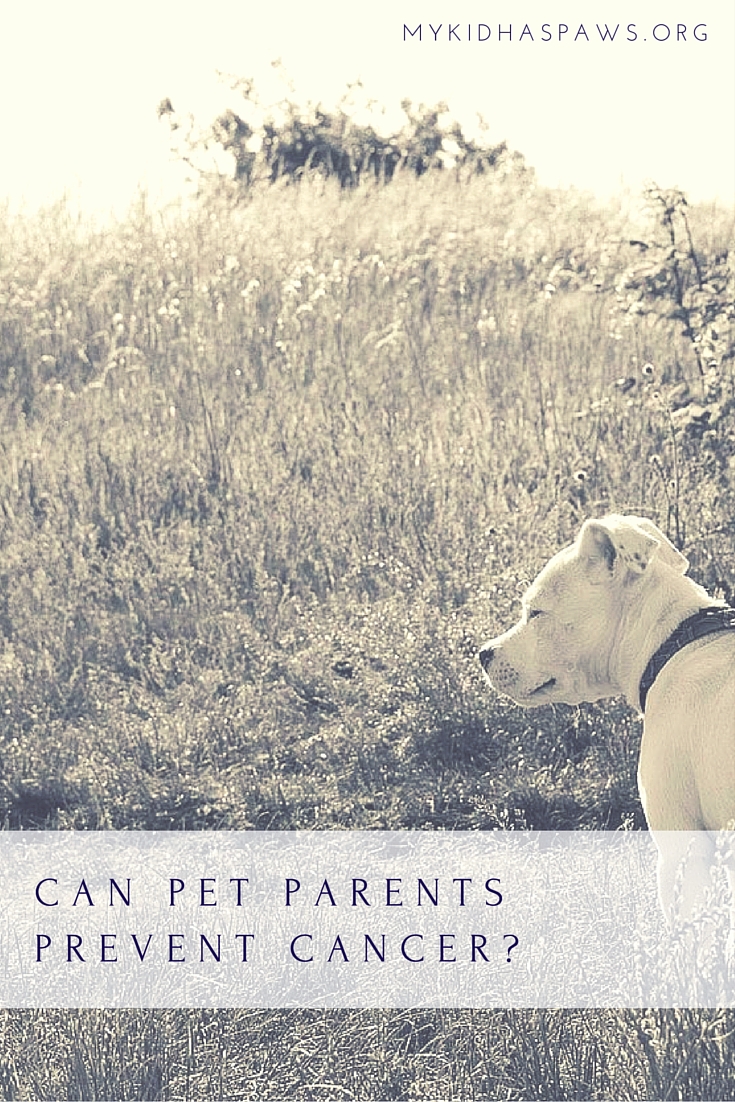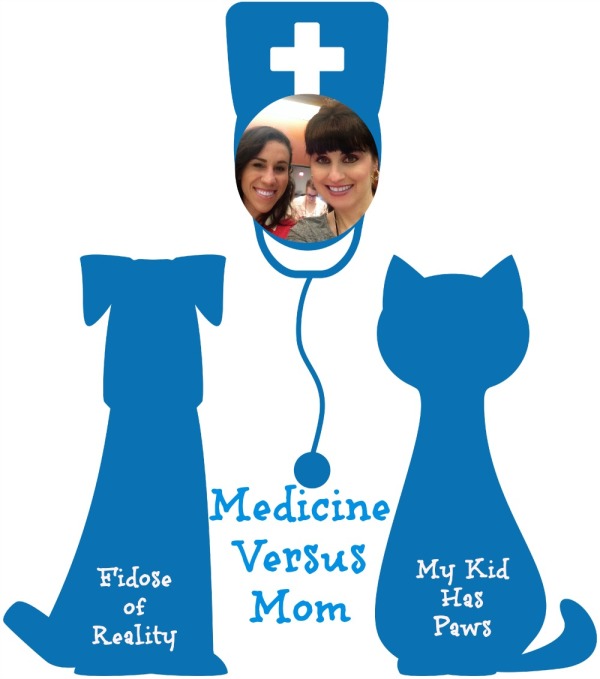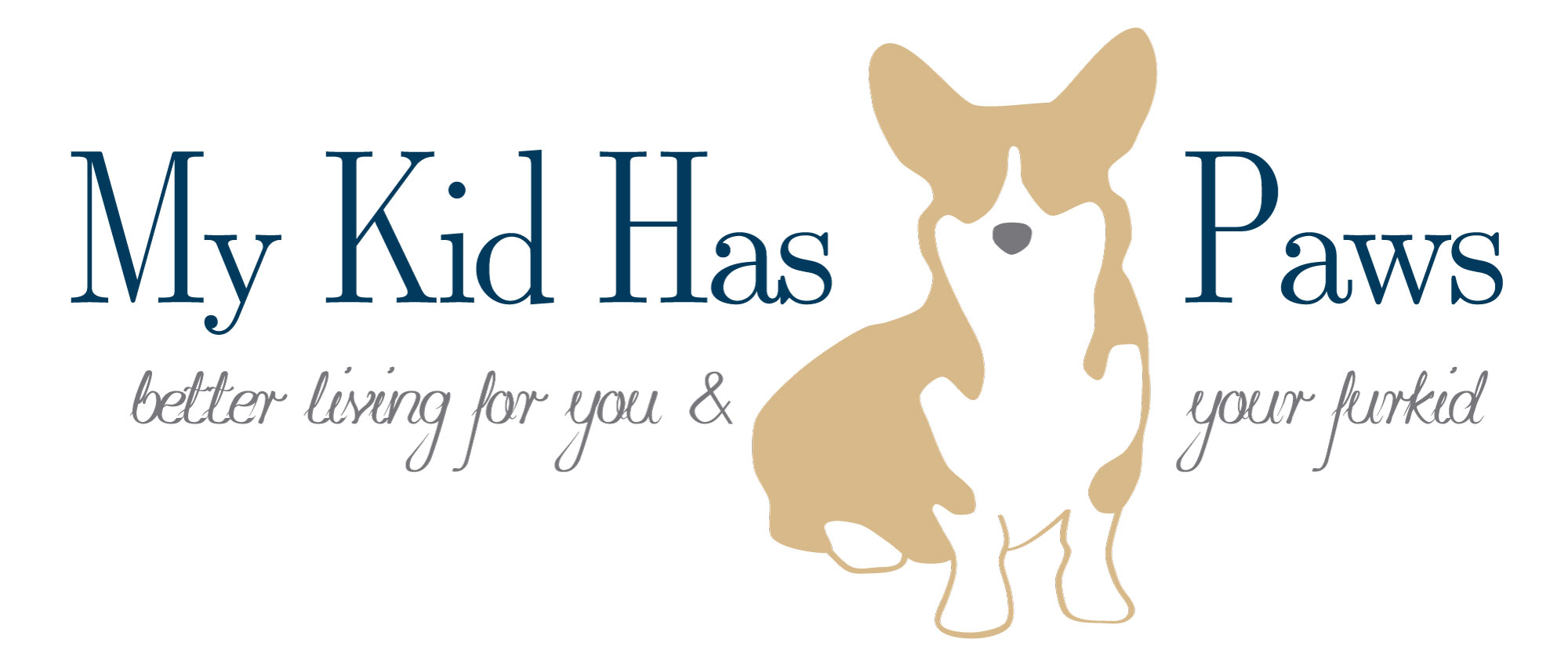The dreaded “C”word.
I heard this word all too often while working in the veterinary hospital. Too many of my patients were diagnosed with various types of cancer, and it was terrible.
Each prognosis left pet parents wondering; Was there more I could have done to prevent cancer?
The answer is always, “Of course you couldn’t have prevented this cancer!”. While I firmly believe that absolute prevention is not possible, providing the ultimately healthy life and doing everything we can as pet parents can help. Every person or pet’s health, and how we can help them, is based on two major factors: their genetics and the environment.
Genetics
Under most circumstances, we do not know our pet’s genetic health history. Truth be told, most people don’t even know their own genetic health history. Of course, responsible breeding plays a role in whether or not pets become diagnosed with cancer due to their genetic composition. However, you as a pet parent rarely have that information. For example, I know that Rooney was bred to be a show Corgi. However, we adopted him through a breed specific rescue, and, therefore, have no contact with the breeder. If we don’t have an opportunity to stay up to date on the health status of Rooney’s relatives, my knowledge regarding his genetics is limited.
However, when it comes to protecting your pet against the potential downfalls of their genetic composition, knowledge is power.
If you don’t know your pet’s genetic history here is what you can do to make sure you proactively help your pet beat cancer:
- Stay in touch with your breeder. Responsible breeders (for more information on how I define responsible, please see this post on the difference between common breeder categories) keep track of their dog’s health history and remain involved and communicative with pet parents to avoid long-term genetic problems and to educate other puppy parents on possible symptoms.
- If the breeders information is unavailable to you, stay in touch with your puppy’s siblings: Sometimes breeders choose not to play an active role in the lives of their puppies. However, with social media and other forms of constant communication on your side, you can make a strong effort to stay in touch with the pet parents of your pet’s siblings. If one sibling is diagnosed with a disease, this can be powerful information for the other sibling’s pet parents.
- Genetic Testing: If you don’t have the option to contact your pet’s breeder, or you have no idea where your pet came from because you rescued your pet, you now have the option to genetically test for diseases. Products like Canine HealthCheck can help you protect your pet against possible genetic diseases. As many of you know, I had Rooney tested about 6 months ago and it turns out he carries the gene for degenerative myelopathy, a disease that cuts short the lives of too many Corgis. With this information, I made myself ultra familiar with the symptoms, and I take the steps below to hope that his environment doesn’t add to the risk.

Environment
Although genetics play a large role in whether or not our pets will experience a certain disease, their genetic composition is out of our control as pet parents. Specific to genetic makeup, all we can do is educate ourselves about symptoms and communicate those symptoms to educate other pet parents. However, when it comes to protecting our pet’s environment, that we can control.
Many of the items listed below are not perfect solutions to preventing cancer. However, they will help you provide your pet with the healthiest possible environment, which can help.
- Invest in Quality Food: There are certain ingredients in food that cancer cells can use to grow. Dr. Becker specifically recommends removing processed grains, starchy vegetables, and fruits that are high in fructose from your pet’s diet (Mercola). The elements of these ingredients can provide food for cancer cells and, therefore, put your pet at risk. If you are unsure about the composition of the food you are currently feeding your pet, discuss some high-quality options with your veterinarian.
- Don’t Overfeed Your Pet: Many pet parents make the mistake of investing and purchasing the healthiest food available, but then they overfeed their pet. In addition to putting pets at risk for diabetes and other complications associated with obesity, overfeeding also puts pets at a higher risk for cancer. Studies have shown that providing only the necessary amount of calories for your pet can prevent or delay tumor growth (Mercola).
- Don’t Forget About Supplements: Omega-3 Fatty acids reduce inflammation in the body. As of today, research supports that cancer is a disease of inflammation. Therefore, reducing inflammation in the body can ultimately prevent cancer (Mercola).
- Make Your Environment Chemical Free: Too many cleansers, pesticides, and other toxins plague our environment. These toxins may seem harmless when you are disinfecting the bathroom or doing your laundry, but the chemicals in our everyday life add up. Where you can, make an effort to eliminate chemicals from your pet’s environment. You can start by doing the following today:
- Stop using harsh chemicals in your daily cleaners and sprays. (more research and future blog post on this)
- Don’t purchase cheap flea & tick medication. Make an effort to educate yourself on the ingredients associated with each brand, and even consider a natural alternative.
- Switch to using natural soaps and detergents to wash your pet’s blankets and toys.
- Do your research on outdoor chemicals and toxins.
- Come Up With a Healthy Vaccine Protocol: I definitely believe that vaccines are necessary. However, I also believe that over-vaccination is possible. Discuss the alternatives with your veterinarian when you first adopt your pet. Many people don’t know that there are alternatives when your pet becomes a senior, and many vaccines are only necessary if your pet leads a certain lifestyle.
- Daily & Annual Exams: I have known dogs who have survived cancer because their pet parents knew every inch of their pet’s fur and were able to quickly detect abnormalities that were removed before the cancer became too big. I have also known pets who survived cancer because abnormalities were detected on their pet’s annual exam. Daily exams at home and regular veterinary exams are critical to your pet’s health.
- Provide Your Pet with Clean & Filtered Water: Of course, this step becomes increasingly important in areas where tap water contains more chemicals and minerals. Educate yourself on your local water quality and look into purchasing a water filter (Only Natural Pet). Talk to your veterinarian about the right water fountain and filter for your pet.
- Adequate Exercise: Not only does exercise prevent your pet from suffering from obesity and other diseases associated with being overweight, but it also boosts the immune system and reduces stress levels in your pet, making them overall happier and healthier.
No matter what action items you currently take to prevent cancer, it is important to know that everything you can do falls into the following categories; being knowledgeable and being proactive. If you keep yourself educated, and you have your pet evaluated regularly, your pet can benefit from early detection and treatment.
Additionally, I want to state that you can do all of the above, and your pet still might get cancer. I have seen too many pet parents beat themselves up because their pet has been diagnosed with a disease. It is not your fault. However, I write this post because I think all of us want to do what we can, even if we can’t protect our pets from everything.
For some fantastic ideas from a dog mom’s perspective on this topic, please visit Carol from Fidose of Reality.





Sharon Seltzer
March 14, 2016 at 2:55 pmGreat post. While we can’t prevent cancer, as pet parents we certainly can give our dogs the healthy lifestyle and nutrition that will keep them as far away from developing cancer, as possible.
Sharon Seltzer recently posted…Blankets In Bloom Fundraiser for Frankie Wheelchair Fund
Kismet
March 15, 2016 at 7:06 amYou don’t have to worry about it but we do. 2-4-D is commonly used here in weed control but is not legal in Kowlifurnia because it is a carcinogen.
Kismet recently posted…The New Kid in Town
CEO Olivia
March 15, 2016 at 5:10 pmPawsome blog post Rachel. So pawfectly put. It’s our responsibility to educate ourselves & take measures to do all we can.
CEO Olivia
CEO Olivia recently posted…An Update On Our Epi Warrior Olivia
Lori Wade
March 17, 2016 at 1:32 pmI have often wondered what, if anything, could be done to prevent cancer. Thanks for the informative post.
Lori … somethingtochewon.dog